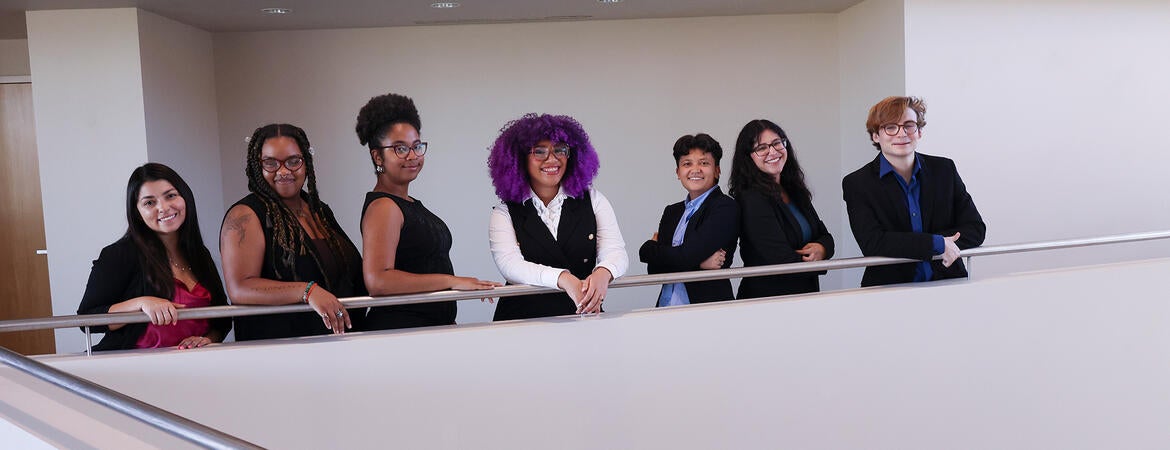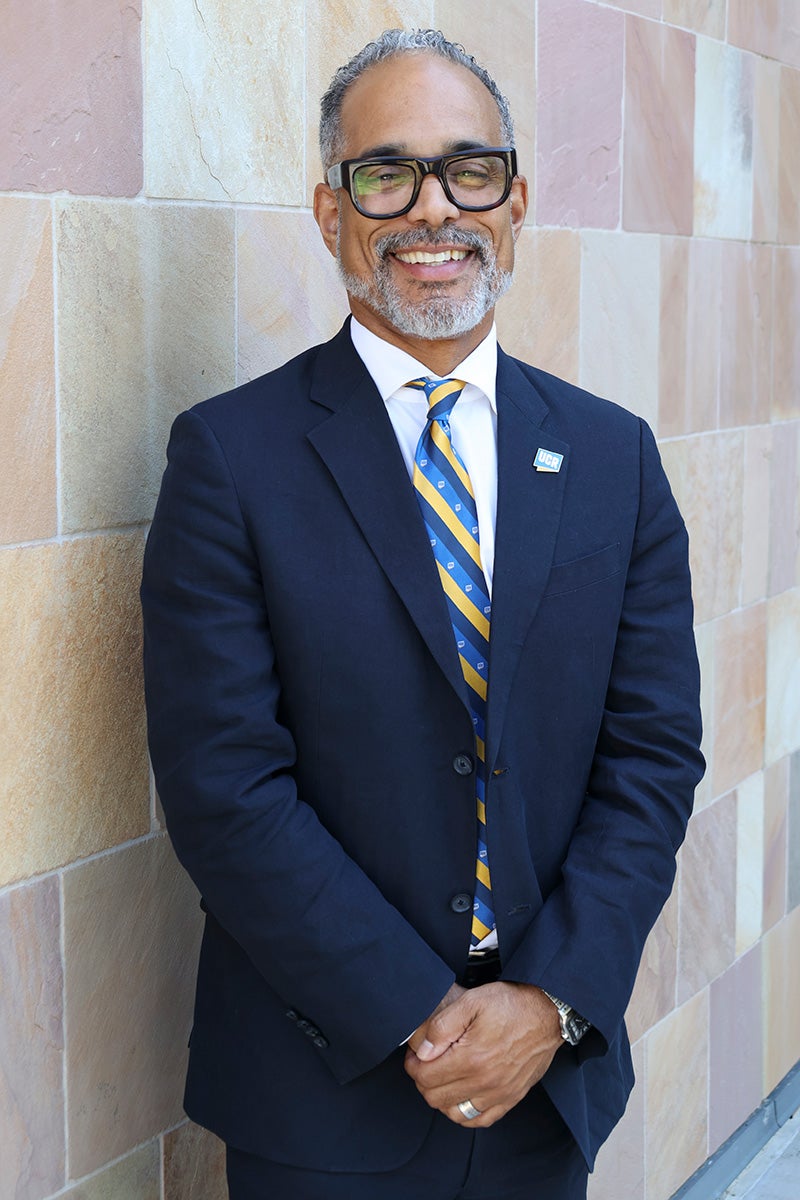College of Humanities, Arts, and Social Sciences

Seven scholars. Seven weeks. Two coasts: Unlimited potential.
The Enslaved.org Summer Research Opportunity Program (SROP), a residential research experience for undergraduates from colleges and universities recruited throughout the United States and Puerto Rico, wrapped up with presentations to more than 80 in-person and virtual guests on Thursday, July 20, at the UCR Palm Desert Center.
The seven-week research experience included virtual meetings and in-person residencies at the University of Maryland (College Park) and Palm Desert, as well as site visits to Tudor Place Historic House and Garden, the National Museum of African American History and Culture in Washington, D.C., and the Fairfax County Historic Records Center.
SROP serves as a gateway to graduate education run out of the Big Ten Academic Alliance (BTAA), an academic consortium of the 14 research universities. The program seeks to prepare promising undergraduates for graduate study and professional careers through intensive research experiences with faculty mentors.
Now in its third year, the Enslaved.org SROP is co-sponsored by UC Riverside, the University of Maryland, and Michigan State University. Enslaved.org is a digital humanities program that publishes datasets and detailed stories of people who were enslaved, owned slaves, or participated in the historical slave trade.
“These scholars are fantastic in their accomplishments, but they're also fantastic in their educational preparation and aspirations,” Enslaved.org Co-PI and CHASS Dean Daryle Williams said. “This is a residential program, a summer research opportunity program. The residential part is important, for not just being together, but also to reconnect with what in-person research and education feel and look like.”
Throughout the experience, the 2023 cohort worked closely with project faculty, curators, archivists, and partners to learn methods for data-informed historical research, developed a dataset to be published in the Journal of Slavery and Data Preservation related to history of enslavement and the recovery of enslaved lives in Maryland, Virginia, and the District of Columbia, and shared their findings with academic and public audiences.
Williams noted that many of the current SROP scholars have had parts of their undergraduate experience — and even portions of their high school years — disrupted by the COVID-19 pandemic.
“I'm very, very happy and grateful and respectful to each of them for taking the risk, for doing something that maybe seemed impossible just a few years ago,” he said.
On July 20 in Palm Desert, the SROP scholars presented the final product of their seven weeks of research titled “Tempering Personhood from Paper: Enslaved, Free, and Disabled Black Experiences from an Enslaver’s Daybook”. Research included historical maps from the Library of Congress, the post-mortem inventories of a descendant of George and Martha Washington, and an account book, about the size of a small novel, provided by the Tudor House once belonging to the Washingtons’ grandson-in-law, Thomas Peter, which contained accounting information about enslaved, free, and disabled Black families and communities in the Mid-Atlantic from 1796-1799.
“History isn't always just what we have recorded,” said Dylan Bails, one of this year’s SROP scholars and a recent graduate from the University of Maryland. “Sometimes some of the work you can do is to try to fill in the gaps that exist within history, and also the archive space.”
Through their research and presentation, the SROP scholars attempted to fill in the historical gaps and provide additional information and context about the 61 individuals enslaved by the Peter family. Utilizing the daybook, the group created its own dataset. In their work with sterile spreadsheets, they were also to recreate a human story of family bonds, gendered labor, and the trauma of forced separation.
“When I saw the outline of what exactly they were doing in this internship, I was like, well, I have to do it because this is changing history,” said Briana Pineda, a 2023 UC Riverside graduate from Temecula, CA, who majored in history and minored in religious studies.
"It was eye opening to meet everybody and see how different we are, but how great we worked together as a group, and doing that collaborative work versus the individual work that I've been doing,” Pineda said.
Enslaved.org is supported by the Mellon Foundation, the National Endowment for the Humanities, and other private and public funders who support the intersections of public humanities, data sciences, and inclusive academic pipeline development.
“This experience has taught me that research can go in any direction that you want, and that's basically the essence of American studies,” said Zoe Rivera, an SROP scholar from Pitzer College who plans to pursue a Ph.D. in American Studies.
According to Wiliams, the SROP residential research experience is another step toward strengthening a partnership between the BTAA and the University of California’s new President’s Multicampus Research Programs and Initiative (MRPI) called “Routes of Enslavement in the Americas.” Announced in December 2022, MRPI supports innovative multicampus research collaborations that strengthen the University of California’s position as a leading public research university.
“As a faculty member, you can work with people in Berkeley, in San Diego, and all the campuses in between,” said Alex Borucki, professor of history at University of California, Irvine, who also serves as a co-project director for the MRPI program. “… we are funding grad students to work on our project from all campuses or to give summer research fellowships to all campuses.”
Learn more about the Summer Opportunities Research Program and Enslaved.org.

FEATURED PHOTO. The 2023 SROP scholars are, from left, Victorianna (Tori) Mejia, St. Mary’s University; Camilia Bell, Norfolk State University; Zoe Rivera, Pitzer College; Salomé Ayers-Sanchez, University of Puerto Rico, Rio Piedras; Summer Matthes, University of Illinois, Urbana-Champaign; Briana Pineda, University of California, Riverside; and Dylan Bails, University of Maryland.